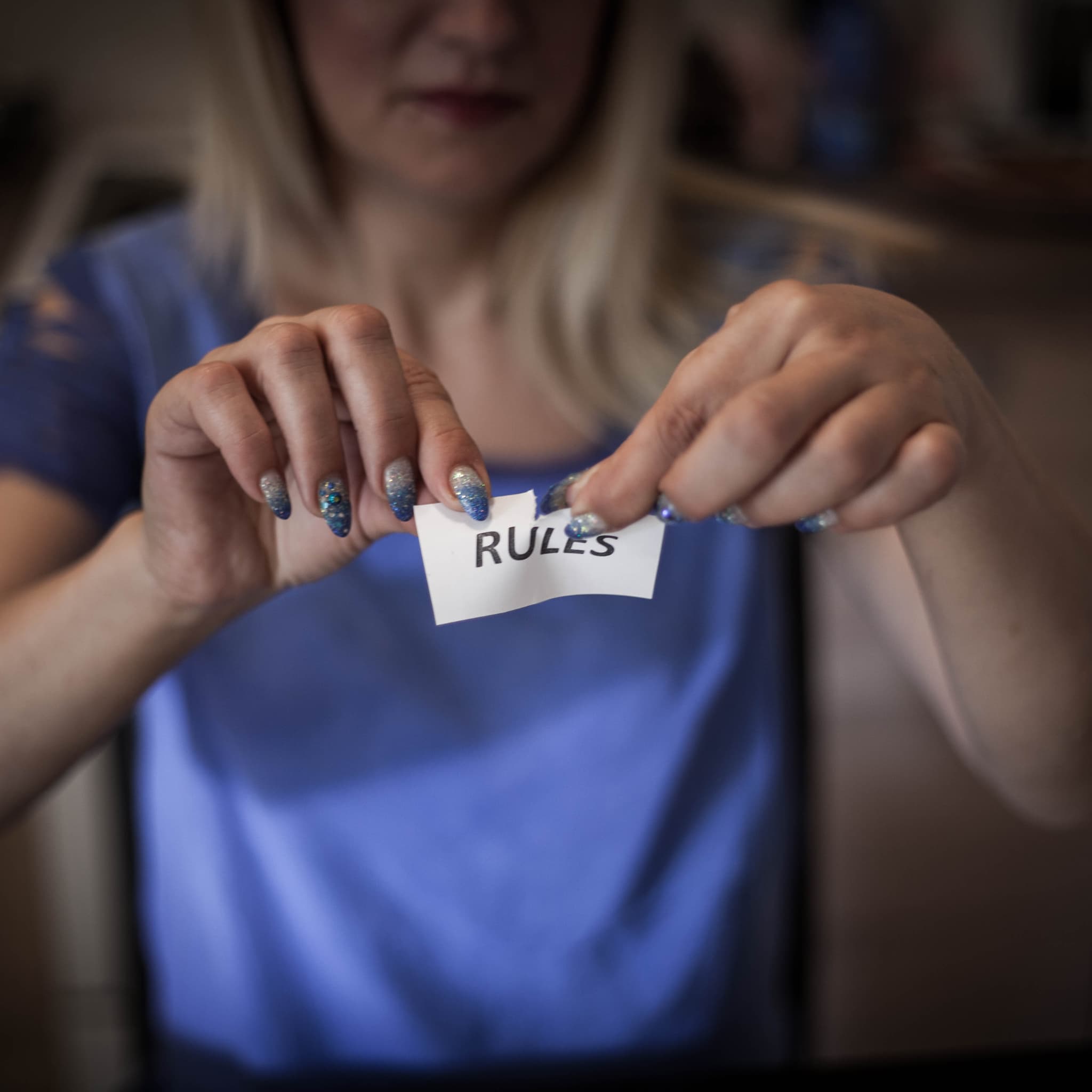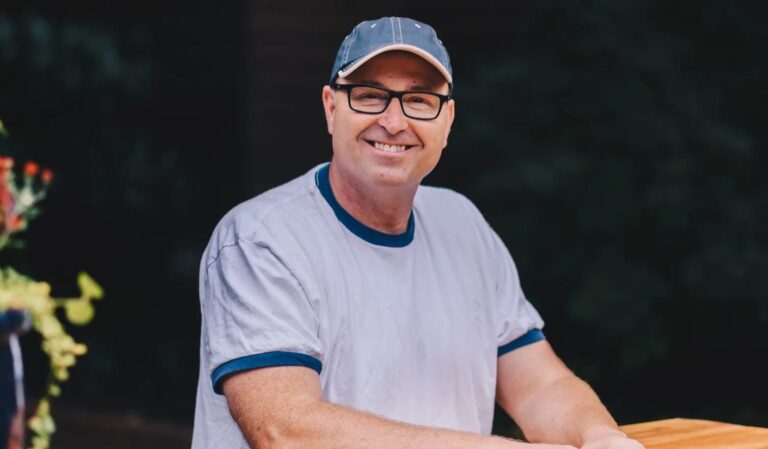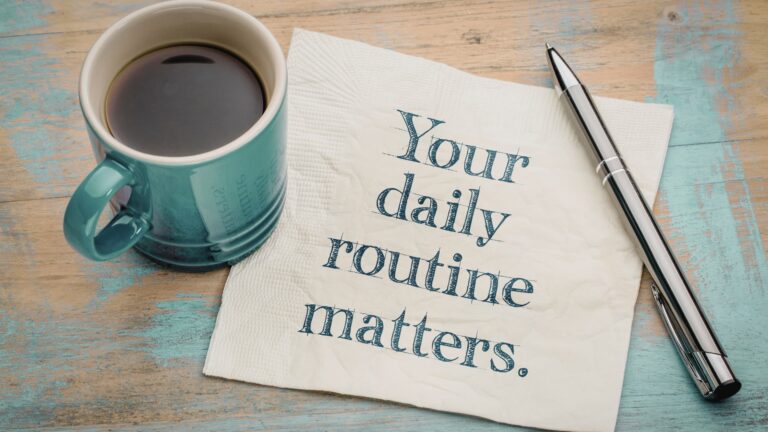Breaking All the Rules: Making Big Changes in Widowhood’s First Year
Join us as we explore the liberating concept of embracing individuality, finding healing in unexpected places, and redefining what it means to live fully in the widowhood’s first year.
When you’re widowed, people like to tell you what you “should” and “shoudn’t” do. Sometimes societal expectations and well-meaning advice can feel like rigid rules that dictate how widows should grieve and live their lives.
But what if, instead of conforming to these expectations, we dared to break all the “rules?”
Did we make big changes, little changes or no changes?
Listen to find out!
Listen to the Full Episode
Watch the YouTube Episode
Connect With Us
- Are you searching for emotional support, practical advice, and guidance on navigating widowhood? Join us in the Widow Squad membership.
- Follow us on Instagram and subscribe to our YouTube channel.
- Get all the widow wisdom you never knew you needed including exclusive content sent right to your email Inbox. Sign up here.
- Join our private Facebook group here.
Episode Transcript
Melissa: Welcome to the Widow Squad Podcast. I’m here with my co-hosts, Jen Zwinck and Kim Murray.
I don’t know if you’ve heard this or not, but you’re not supposed to make any big changes within that first year of widowhood.
I’m just going to start this off – I broke all the rules. I made all the changes. I did everything you’re not supposed to do, but it was kind of a necessity.
Breaking All the Rules: How I Made Big Changes in Widowhood’s First Year
Melissa: What happened was, Dave died very suddenly. I live in Oregon, but I was living in the eastern part of the state that’s very snowy. I lived on the side of a mountain and Dave plowed the snow. He died in January. We could never get out of our driveway.
I hated living up there and the house was on the market when he died; we were in the process of selling it, and this was in 2011 so it was a slow market. I was really concerned about feeling safe up there with my two kids and I did not have the capacity to get out and get the little four wheeler with the snow plow thing and plow every day.
In fact, when he died, people couldn’t get to us because we had had a storm. It took a while for the paramedics to get to us. He died very suddenly at our home and I just had to get out of there. I talked to a couple of our guy friends and they were like, “Melissa, we can’t take care of you and the boys.” They felt it was their responsibility to take care of us and they didn’t feel like they could take care of us on the mountain. I made the decision to pack everything up within the first two weeks after Dave’s death.
Kim: That makes sense. But my god, the decisions. Holy mackerel.
Melissa: Yeah, I kind of have goosebumps right now because I have limited memory of that time. I don’t know. My beautiful brain is protecting me from all that trauma.
I was planning a funeral, not even understanding that Dave had died, and packing up all the things at the same time. The day after Dave’s memorial service, the whole town came up with all their trucks and moved a 3,000 square foot house full of stuff into a rental home closer into town off the mountain and that was the best decision I could have made because I was in a community.
This community was where Dave taught, he was a teacher in this community. They just took care of us for six months until we moved back to Portland, Oregon, which is where I’m from, where my support was and my job was. I was working remotely at the time.
So, yeah, I moved within two weeks of his death.
Jen: Was part of your reasoning to move because of your location?
Melissa: Yes.
Jen: But do you feel like part of that had to do with the fact that he had passed away in your home?
Melissa: Yes.
Jen: You just wanted to get out of there because of that reason?
Melissa: I didn’t sleep in our bed. He died in the bed so I didn’t sleep in our bed. I would sleep out on the pull out sofa with the boys. It was like a puppy pile. Everybody would just pile into the living room, just like, sleep together. It took a few days for me to get to a point where I felt like I could sleep in the bed. It had just had so many memories. We were moving away from that home because it didn’t feel right to be there in the first place before he died.
Kim: That seed was planted before he died. You knew that was a thing.
Melissa: But I had to go through all the clothes too. We moved from a 3,000 square foot home into a smaller rental home and I stored a lot of stuff. Luckily, I had so many people there helping box everything up and moving and setting up. Like, I didn’t have to do the cable, I didn’t have to set up a washer and dryer. Everybody did that for us.
Jen: Nice.
Melissa: It was nice. I talk about this in my book. I moved into a rental and then two weeks later, I moved out of that rental because there were cats that were sneaking under the house and not able to get out. There were cats that were dying under the house!
Kim: Oh, my gosh.
Melissa: Oh my God, you should have seen me. I was a wreck. I was an absolute wreck.
Kim: Well, no kidding.
Melissa: There was a baptist minister from the town and he came to the house and brought a pie over. He knocks on the door and I just completely fell apart. I’ve never met this man before. I fell apart and he’s like, “here’s the pie…I got to go.”
I just fell apart because it was so much stress, the stress of moving. What is that Holmes-Rahe stress scale? I go through that and I’m at 1,000 on the stress scale. 100 is your partner dying but then moving all this stuff. But it was necessary. I’m glad I did it. Looking back, it was what I needed to do. But it was like, jeez, that was something else.
Kim: That’s a lot, wow. In a very short amount of time.
Jen: To move into a place and think, at least I’m a little bit settled right now. Then no.
Melissa: I was so embarrassed and almost like there was a little bit of shame thinking hey, community that just helped us move…do you mind doing this again?
They were so gracious and wonderful. I mean I have so much love for this community. It’s a very small town in Oregon, but it was where Dave taught and they were grieving too, so we were all kind of grieving together. They kept an eye out for my boys. They would help with the logistics of getting them to basketball practice or baseball games. I knew all the teachers and this one teacher didn’t give my kid any homework for the year. I had to talk with her about giving him some homework. This is not a gap year for him. He’s in the fifth grade. But they were just so wonderful and I’m so grateful that I had those folks taking care of us.
Jen: What about any big work changes? Did that change for you? Were you working and then you had to quit?
Melissa: No, I was working remote for the whole time we were there. I worked for a Fortune 500 company in Portland, but they allowed me to work 200 miles away in eastern Oregon. That didn’t change. I had to take a short term disability because that was the only way that I could get five weeks off after Dave’s death. But I actually needed it a year later because at the time I’m just doing all the things in the business of his death and not really processing it.
When I started processing it about six months to a year later and really going down the tubes, I really could have used that time off. But I ultimately did quit like a year later, but I kept working full time after he died.
Jen: Wow.
Melissa: That’s my big change story. Kim, what about you?
Title
Kim: Well, interestingly, I didn’t make major changes. I am a rule follower, so when they say don’t make changes in the first year, I did not make changes. That’s what my mindset. I was like, I can’t do anything that would cause any more disruption.
To back up a little bit, we knew my husband was going to die. He had terminal brain cancer, so we knew he was going to die. I had a little, obviously, more preparation. Not that you can prepare for someone’s death, but you know what I’m saying?
A little more preparation in terms of what I’m going to do when he’s gone. I took over running his business after he got sick. I was working running that business and after he died, I just continued with my normal routine. That was anything but normal at that point after he was gone. But I had to keep things the same as I possibly could because I had no control over the fact that he died, right? Everything’s changing in my world. I’m like, okay, how do I make sense of this? Well, I go to work. I take the kids to school. We go to their baseball practice. We do piano lessons. We do all the things that we were doing prior.
I stayed in my house. I didn’t move. I had no intention of moving. There was no reason for me to move. I remember my in-laws asking me if I was going to move. This was Mark’s parents. My father lives in Florida, so they wanted to know if I was going to move to Florida. They thought I would probably be moving closer to my dad. I said, “no. I’m not moving. I’m not uprooting the children from their home. This is their home. There’s no way I’m disrupting them again.” Beside the fact that, like you said, Melissa, we had a community where I was, and that was my support. I’m not leaving my community or my kids’ school community because they’d grown up in the same area for their whole lives. No, I’m not going to move. I stayed in the house.
I remember having these lofty thoughts about actually selling my house, renting an RV, and just traveling the country and homeschooling the kids, right? I crunched numbers. I looked at options. I mean, I knew I wasn’t going to do it because, again, I’m going to stay in my house. But, man, I had some plans. Like, I was going to do this thing, because when else would you have the chance to just pull your kids from school and go travel the country? Their dad just died. It’d be the perfect time to do it. But, I came to my senses because I am not a homeschool parent. I never was and I never will be. That would have been a recipe for disaster. I thought about it, but I didn’t do it.
I kept working. I took the kids to their piano lessons, which I hated. First of all, I hated the job. I kept working. I hated taking the kids to piano lessons. I kept doing it. I hated going to their sports stuff. I still did it. I went and got football stuff for my son’s football teams in practice. We had to get the cups in the pads and all the things. I remember his first practice, he was kind of late to his first practice because we couldn’t get the pads into his football pants. I thought we finally figured it out. I wasn’t asking for help, by the way, so keep this in mind. I’m doing all the things, trying to keep everything the same. I don’t like change. There was enough change with my husband’s death, so I’m trying to keep everything the same. But I put this kid’s football pants on and he runs out to the field and runs back in and says they’re on backwards.
Melissa: Oh, no.
Kim: I couldn’t get the pads right. I couldn’t understand it. Again, we’ve talked about this before, we’re intelligent people, right? We’re intelligent women. We can figure stuff out. In the meantime, these little things get the better of you. He was devastated and his pants were on backwards, and I was frustrated and obviously stressed. I’m like, “you know what? If your coach says anything, just tell him your dad died and he’ll move on.” I mean, that’s how you look back at some of the things you’ve said to your kids, and you’re like, Why?
Melissa: Did I say just that?
Kim: But I was so mad and so frustrated their dad died. I don’t know how to put pads into football pants. If they have a problem with it, then just tell them that. Not a good parenting moment.
Melissa: You’re doing your best.
Kim: I’m doing my best, but my point is, I’m trying to keep everything the same.
Well, guess what? After someone dies, nothing will be the same again. In my quest to make sure that everything stayed as normal as possible, I drove myself insane because I wasn’t asking for a lot of help at that time. I was doing the things I didn’t want to do because I was trying to keep my kids’ schedule as normal as possible, but I hated all of it.
It’s interesting, though, Melissa, you’re talking about your memory. When you try to think back on that first year, it’s hard to remember everything. When the boys were born, I’ve probably mentioned this before, I started writing letters to my kids every month after they were born. I started writing them letters every month, so I have years and years of letters. Okay, so I continued this after their dad died. I mean, I still wrote the letters to them after he died.
So I just went back and read my first year after my husband’s death letters to my kids, and holy crap, we traveled a lot that first year, and honestly, I remembered a few of the trips, right? But I go back to these letters. I say we didn’t make a lot of changes, but I dragged these kids all over God’s green earth. Okay, so Mark died in February. We went to Chicago in April. Then I took him to Alaska that July to take his ashes to Alaska, right? Then later that summer, we went up North Michigan. That same month, I decided to take him to the Cedar Point Amusement Park in Ohio. We did that, too. That summer, I was dragging them to Greenfield Village in Dearborn, which is the Henry Ford Museum in Greenville Village. We went all over the lower part of Michigan, Port Huron, it didn’t matter. We were gone from the house.
Then in November of that year, we went to San Francisco to a cousin’s wedding. Honestly, you guys I’m sitting here today like, holy crap. That first year, like, oh my God, here’s me saying I didn’t make any changes. Everything was the same. I followed a schedule, blah, blah, blah. Then I dragged my kids all over the country because I could not wrap my head around the fact that my husband was gone. We just left the house as often as I possibly could. There was more in the letters. Those are the top things that we did. Honestly, there was more. I don’t know how they thought about it that summer or that whole year.
Jen: Right.
Kim: I just wanted to go somewhere other than my house.
Melissa: You wanted to escape.
Kim: I wanted to escape. Maybe that’s what they needed too.
Jen: That’s what everybody needed.
Kim: I think so. But that was all fine that first year. Of course, we know that catches up with you. Not only was I trying to stay away from the house, I’m obviously not feeling my feelings, which is a whole other topic. But anyway, it was just crazy.
Mark died in our house. We brought him home with hospice, so he died in the house. I didn’t have any feelings about moving because he died in the house. It was not sudden and we knew. I brought him home for that purpose. To die in his house. I did not want him in the hospital. That was part of the deal.
But when we ended up selling that house several years later, my youngest son said, “are you going to tell people that dad died in the house?” I said, “no. Why would I tell people?” and she said, “well, don’t you think they have a right to know?” I said, this wasn’t a crime scene. People die in their homes all the time, elderly people, whatever natural causes. I was not going to tell somebody your dad died in the basement anyway. I did not feel that was information people needed to know. But he was very upset. Like, you should tell them. They need to know. I said, “they actually don’t need to know.” I don’t think that it was a different circumstance.
Melissa: That’s interesting, Kim, when you talked about planning your RV trip all over the world or all over the US. You didn’t want to be there or deal with it at all. It was kind of a subconscious thing. It wasn’t like, Kim, you don’t need to think about this anymore. Why don’t you plan an RV trip? It was just your subconscious or your self, your higher self taking care of you during that year when you couldn’t deal with this right now. Honey, deal with it later. Deal with it later. We’re going to distract you.
Kim: Yeah, because I was doing the job I didn’t want to do and I never wanted to do his job. I never wanted to take over the business, but I did it. I was trying to find ways that I could get out of it without quitting.
Jen: Yeah, right.
Kim: I’m doing air quotes “quitting.” Because I’m not a quitter. I would try to figure out ways if I’m going to take the kids on an RV trip, I can’t work there. I might as well. That would be a legitimate way for me to end that part. I never did that. Those were my thoughts back then, but I never did it. Yeah, if I had to do it over again, I would not have done the things I didn’t want to do for as long as I did, though.
Melissa: Yeah.
Kim: But obviously, hindsight is 20/20, so knowing what I know now, I would give the advice to newer widows to just, if you don’t want to do it, don’t.
Melissa: Yeah, absolutely.
Kim: There weren’t major changes like moving or quitting my job, but, Jen, I’m sure you’ve got lots of changes that happened from your situation too.
Against the Widowhood Norms: Making Bold Moves and Embracing Change
Jen: I made so many changes. I don’t even remember hearing that rule. Maybe somebody did tell me, maybe they didn’t. I don’t know. I was just, like, relying on intuition and how I was feeling and not thinking about anything else.
Brent was killed in October and I tried to go back to work, probably, I can’t even remember. It was like maybe four weeks later or something. That was a mistake. I tried to go back to work. I am an optometrist. I see patients all day long, one on one, trying to fix their problems, trying to help them and I love my job, I love what I do. But when someone was coming in and complaining that their eyes were too dry, I’m like, oh, really? That’s a problem. Let’s talk about your big problem. Let’s talk about your dry eyes. Because I don’t care.
Melissa: Yeah, I get it.
Kim: Try burying your husband and then tell me about your dry eyes.
Jen: This is my job, this is what I do. I help people and I love helping people. But it just was not anything that I wanted to hear. I didn’t want to hear any complaints about things that I didn’t care about at the time. It was just very difficult. So I chose to step away from that. I remember I was at work and I told them that I was resigning. I was quitting. I’m not a quitter. I was so upset with myself because I had to sit down and type out this letter and I said, I am choosing to resign, blah, blah, blah. I can’t even remember what I said. But as I was typing, I said, as of right now or at this moment, I am not capable. I wrote those words, I am not capable.
Kim: That makes sense.
Jen: I stopped myself and I was like, I am not capable. It stopped me in my tracks when I said those words. I was so pissed at myself that I was not capable of doing my job. But I had to just face it and just be like, not right now. I can’t do it right now. I’m not in the headspace to do it.
Kim: Yeah, that’s the key. Not now doesn’t mean forever. Yeah, but that’s a good point. At that moment, you weren’t.
Jen: At this moment doesn’t mean that I am not capable. It’s just not a priority right now. I am going to put myself first and I care about my patients. I care about my patients. I usually do. I just didn’t have it in me to focus. It was just very hard to focus on work too well.
Melissa: They must have understood. I mean, they knew what you were moving through, right?
Jen: Yes, Brent was killed in October. I did go back for a couple of weeks before I realized I was not going to continue in that office. I was able to take a little bit of time off. However, my other issue was that Brent was killed in such a violent way that I wasn’t feeling very safe. I was feeling very vulnerable. Not that anything bad happened in my house, because he wasn’t killed in my house, but I just felt like it was not a safe place for me to be.
So I decided right around the same time that I stopped working, that I was going to go to stay for a year in our vacation place that we love to go to every year, Turks and Caicos. We went there twice a year, sometimes three times a year. It was our happy place that we would go to just to escape and get away. At the same time, I was struggling with my identity. Here I am, I can’t practice optometry like I’ve always practiced optometry. That’s a huge part of my identity. My other part of my identity is being a housewife. This is my identity. I am a wife and this is where I live. I just kept saying, okay, universe, if I’m not supposed to be here, then where am I supposed to be? What am I supposed to be doing? I can’t do this job. I’m not a wife. I need to figure this out. I felt like I needed to leave to do that.
Kim, you talked about escaping. I did it. It was Thanksgiving, so probably six weeks after he was killed, my daughter and I went down to Turks and Caicos to rent a place for, like, ten days. On the second day down there, or the third day down there, I decided I was going to stay for a year and regroup and heal and process everything that was going through my head, or tried to anyway. So, I found a place to stay and signed a one year lease. January 1, we flew back down there, just the two of us. I didn’t know a single person on the island, did not know anybody, but I didn’t care to know anybody. That wasn’t my point of going there. I just needed to get away from everyone and everything that was familiar to me and figure myself out.
So we did. We went down. I kept my house. I knew that I was going to sell my house, though, because, again, that was, I felt, like a huge part of my identity. I knew I had things to sell. We had a boat because we lived on the water. I wasn’t going to drive the boat around with just my daughter and I, and it was like a speedboat kind of thing. I can’t do that. I just can’t. I had big assets to get rid of like his car.
Anyway, I made so many changes.
My daughter and I were gone, not just for one year, but we ended up staying on the island for almost three years. I was coming back and forth during that time, so I sold my house. Not within the first year. I had made the decision to sell my house within the first year, but I didn’t sell it until the second year. But, yeah, selling his car, selling the boat, selling a lot of his stuff that I just didn’t need any didn’t have any use for, like, a table saw or whatever. But, yeah, the biggest things were quitting my job that I loved, and I had been in that office for ten years and then escaping.
I had to get away just to figure myself out.
Kim: I love that story because I did not know that going to live in Turks and Caicos was an option! I love your story because it’s like, oh, if I knew Turks and Caicos was an option, I might have gone there, too. I’m just teasing, but, that’s a great decision that you made to just process what you were going through and doing in a place that you loved. I’m just impressed that you made that decision to do that.
Melissa: Yeah.
Jen: While the timing worked out with my daughter, too, because she was only two, she hadn’t started the piano lessons and the school and all of the community and the kids. She didn’t have any of that yet in her life. For me to pick up and go, it was an easy time for us.
Melissa: Right.
Jen: Had she been a little bit older, I probably wouldn’t have made that decision.
Kim: Yeah, that’s a good point.
Melissa: Jen, were you getting any feedback from your family and friends? Like, wow, that’s something, or were they just like, yes, Jen’s going to do what she’s going to do, and we trust her. What was that all about?
Jen: No, that was the funny thing. I just did an interview on another podcast, and they asked me the same thing.
I had signed a lease. When I was down there in November, I came back and I had to tell my parents that I was leaving. I sat down with them and I told my dad. I said, “I think I’m going to go. I’m going to go for a year.” He said, “a year? What about just six months?” In my head, I had already gone through the next year. I said, “we have Mother’s Day. We have Father’s Day. We have 4 July.” I had all these occasions and holidays and big things that we used to do at our house. July 4th was big and we would have big get togethers, and it was a big deal. I did not want to be at my house for that. I did not want to have that reminder in my face of that life that I couldn’t have anymore.
So I said,” I’m going to go. I just need to get through this year.” Get through that first year. He said, “Okay. Nobody knows how you’re feeling right now. Nobody knows how you feel. If this is what you feel like you need to do, then do it.”
My mom was just kind of listening to the conversation, and she stood up and she walked into the kitchen and she just started, like, scrubbing the counters and she didn’t say a word. I cannot believe she didn’t talk me out of it or tried to talk me out of it. She just stepped away because she didn’t know the right answer. What is the right answer for what just happened? There is no right answer. What are you talking me out of that you know is going to be helpful for me?
Melissa: You don’t know.
Jen: Nobody has an answer to help this, so they were just being as supportive as they could and so were all of my friends, everybody. I didn’t have anybody try to talk me out of it, because what’s the right answer for what you’ve just been through?
Decisions Aren’t Permanent: Defying Convention and Choosing Your Own Path
Melissa: You know the answer. I mean, you know in your gut that that’s my compass. I don’t know what six months or a year looks like down the line, but I just know I can’t be here right now.
Kim: Well, that goes back to what we’ve said before, too. Decisions aren’t permanent, right? You can make a decision and then change your mind when new information comes up, or if you didn’t want to stay three years, you could have come back. Everything that you do is based on what’s happening for you at that moment, right. What you think is best. That’s all I need.
Jen: If I had gone down there and stayed for six months and found that I was completely miserable and it wasn’t what I needed, I could have come back. Nothing is permanent. We know this.
Kim: We know it now. We didn’t necessarily know it back then, but I mean, we know it now.
Melissa: If we circle back to, “don’t make any big changes in that first year,” I don’t even know if that’s a guide.
Kim: I don’t think it’s a good guide.
Melissa: You need to do what you need to do.
Kim: Your point was perfect, though, Melissa. You had a situation where you couldn’t stay on a mountain. You had to move off for the safety of all of you. That happened in two weeks. This guide of not making decisions doesn’t apply, right? It doesn’t apply to everybody.
Melissa: Even if you’re in a house and everyone’s telling me that I shouldn’t do anything for a year, I really hate being here… you can make a decision, you can do something different. It’s not permanent. That’s the whole thing. You can go down a path, and then you can change the path, or you could change the direction that you’re going.
Kim: But I didn’t change my direction. I tried to stay the same. Right? That’s what I’m saying. In hindsight knowing what I know now, I might have changed some directions, but I was just plowing forward, keeping everything the same, and not making those changes in the first few years. I would do things differently if I knew I had permission to change my mind.
Melissa: I know. It’s like really trusting your gut and we’re just trying to cope the best we can. All widows, You got to do you.
Kim: That’s right.
Melissa: Yeah. Wow. Well, this has been good. I’d be interested to see what the feedback is from folks who are listening, what changes they want to make that they’re maybe not making because they’re adhering to this rule of “don’t make changes.”







